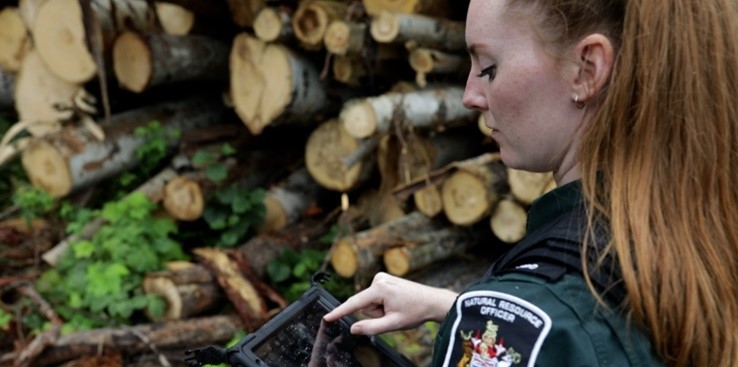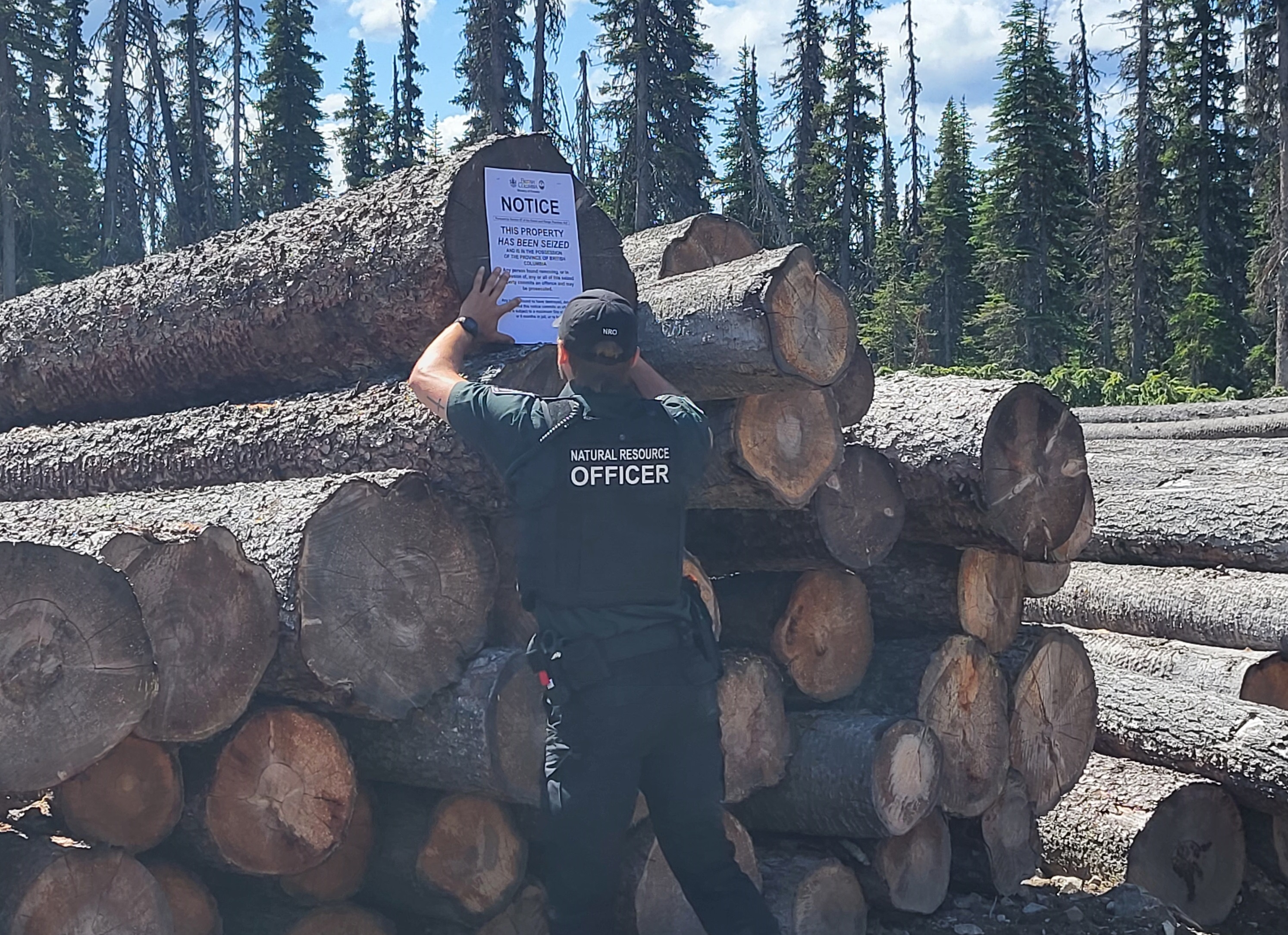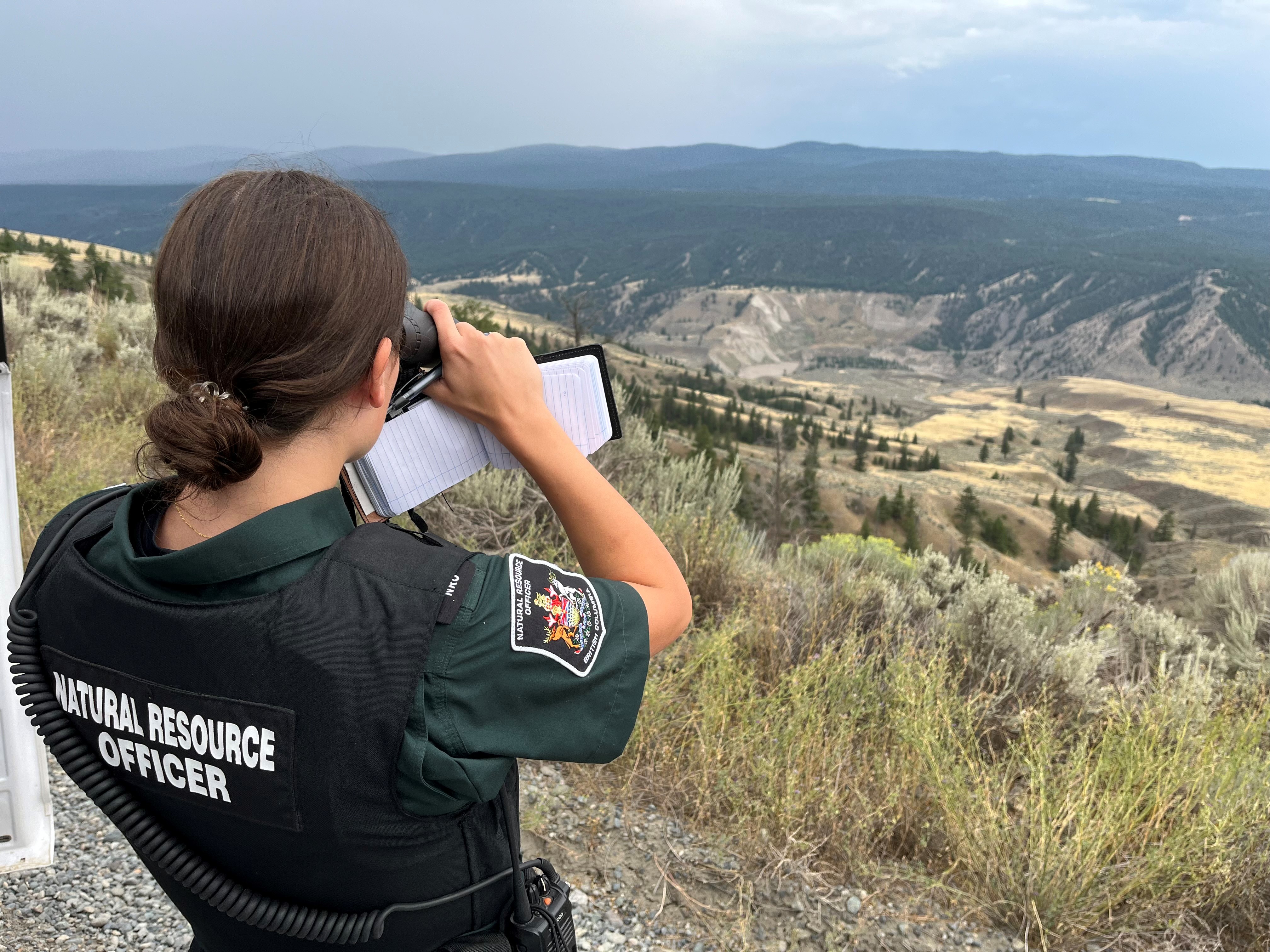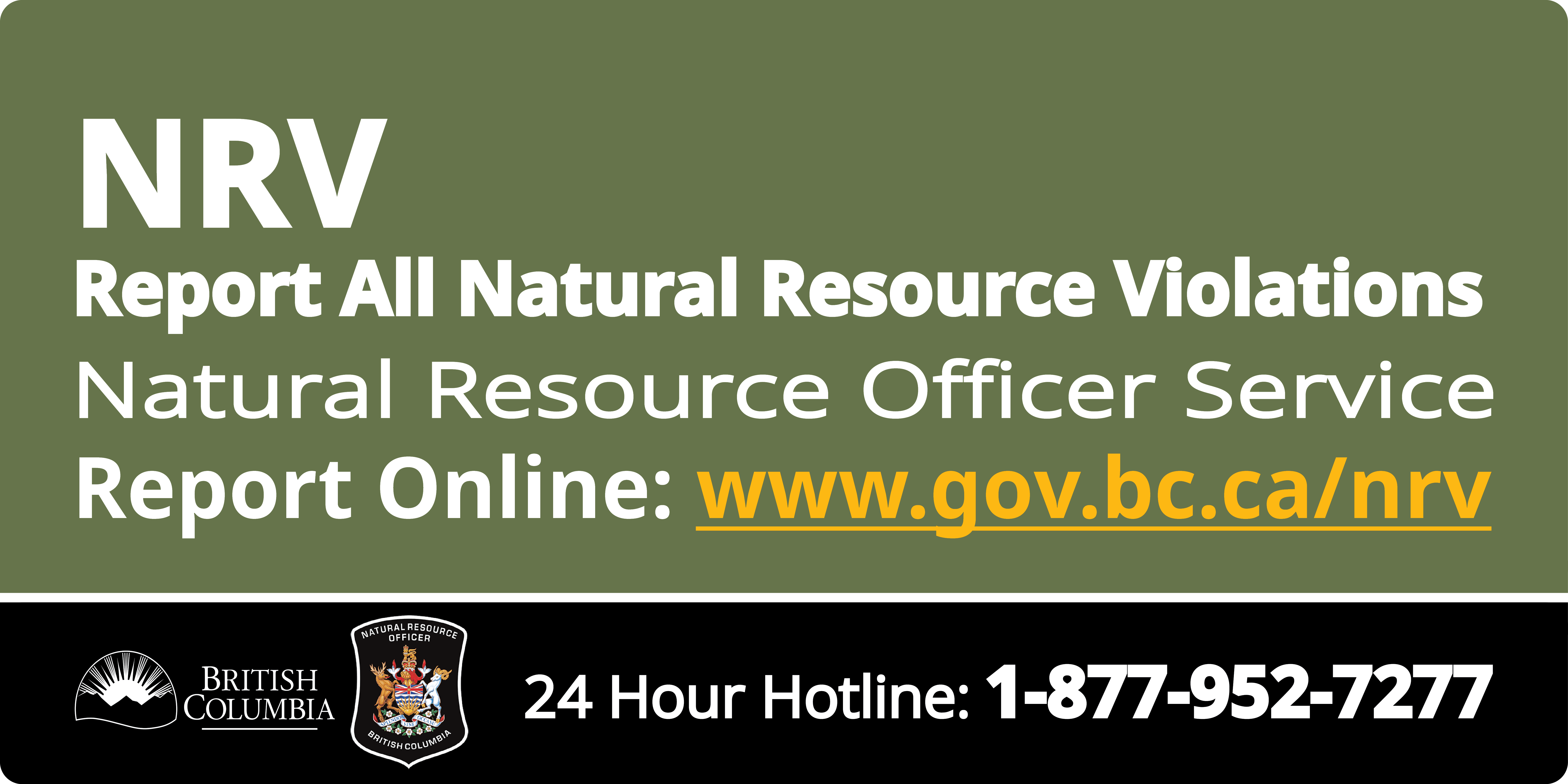Natural resource enforcement
 The Natural Resource Officer Service (NROS) utilizes three primary enforcement responses to remedy offences against laws within NROS's mandate. Depending on the severity or harm caused, NROS will utilize administrative, quasi-criminal, or criminal proceedings to hold offending persons accountable.
The Natural Resource Officer Service (NROS) utilizes three primary enforcement responses to remedy offences against laws within NROS's mandate. Depending on the severity or harm caused, NROS will utilize administrative, quasi-criminal, or criminal proceedings to hold offending persons accountable.
On this page
Administrative law
The Forest and Range Practices Act, the Wildfire Act and the Water Sustainability Act all allow for an administrative remedy when a contravention has been investigated. An administrative hearing, called an “Opportunity to be Heard”, is held where the investigating NRO presents their evidence to a delegated decision maker who then renders a decision. Once a decision is made, that decision can be appealed to an outside commission for a re-determination.
Possible outcomes include:
- Administrative remedy (usually a penalty to address cost recovery for the Crown, plus a deterrence penalty)
- Remediation order (to restore a damaged site)
- Suspension of the tenure or licence under which a licensee or client may be operating
- Cancellation of a tenure (the person or company may no longer operate on the site)
Quasi-criminal Law
Quasi-criminal refers to treating an act in a civil case as if it were occurring in a criminal proceeding. The provincial Crown counsel depends on the investigative evidence collected by an NRO to support the proceedings in court.
Prosecution options:
- Violation tickets
- Provincial prosecution (the charge is processed through provincial Crown counsel in the B.C. court system)
Criminal Code
Criminal Code offences are the most serious offences and are similar to quasi–criminal proceedings as the provincial Crown counsel depends on the investigative evidence collected by an NRO to support the proceedings in court.
Examples of criminal offences:
- Theft
- Fraud
- Mischief
- Arson
- Competition Act

Enforcement actions are used when an NRO determines that legislation has been contravened and a formal sanction is warranted. For example, enforcement actions may address contraventions that have damaged environmental, social or economic values.
Restorative justice options
Restorative justice is a process in which the offender, representatives of the affected community and enforcement staff collectively decide on appropriate restitution or repair of the harm caused by the contravention.
Learn more about Natural Resource Officer Service Reports and Statistics
Unauthorized harvest investigations
Emergency response
Forest harvesting practices
A Natural Resource Officer issues a seizure notice in an investigation into an unauthorized harvest of timber.
Use the Natural Resource Violation (NRV) form to report known or suspected violations of illegal water use, works around water, unsafe fire use, roads, forestry operations, and any illegal activity on Crown lands or archaeologically sensitive areas.




